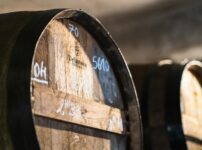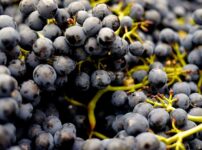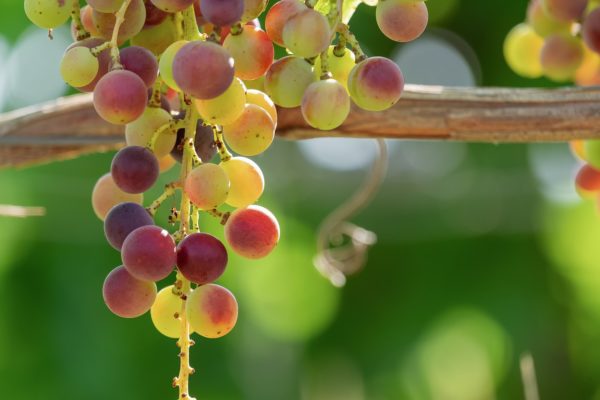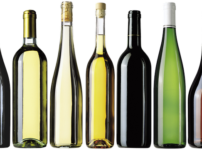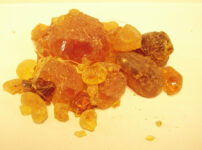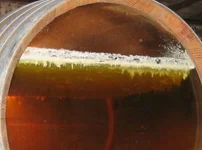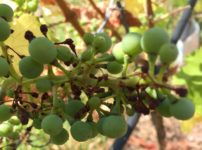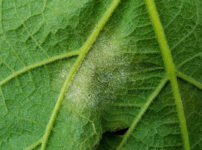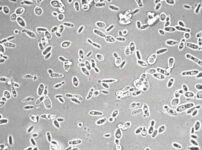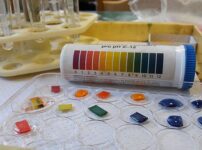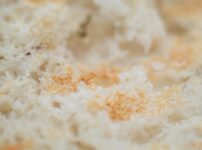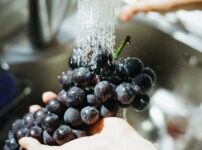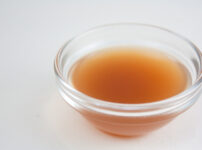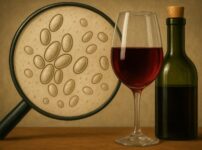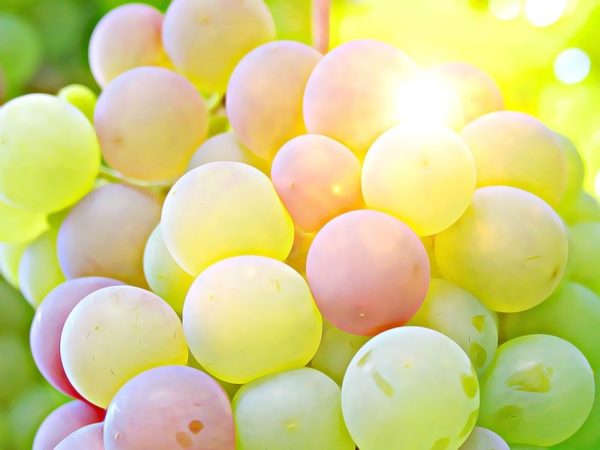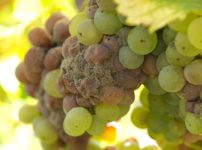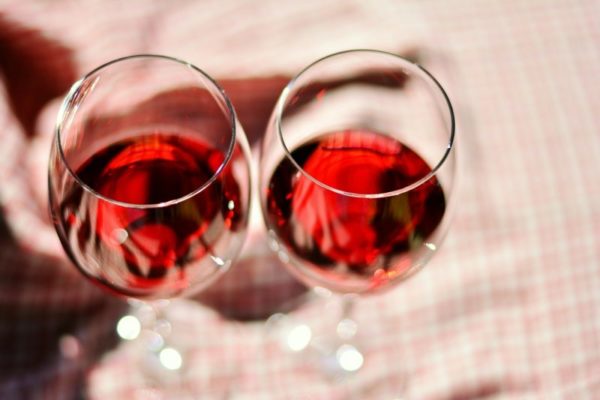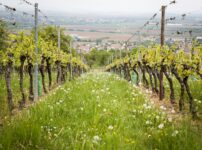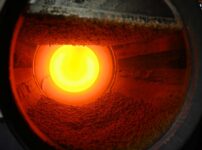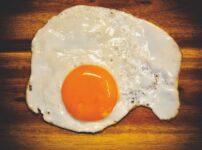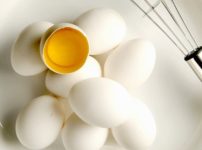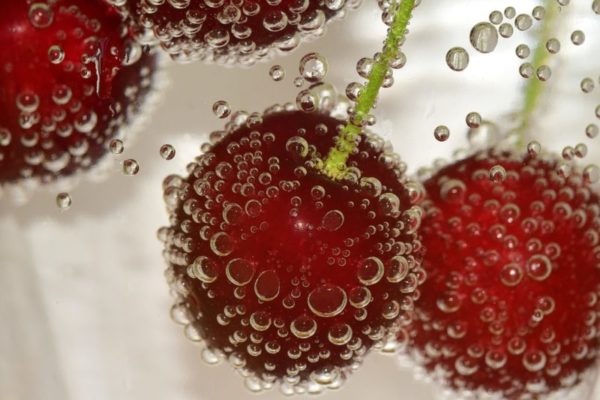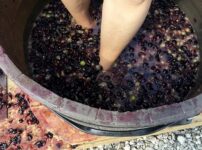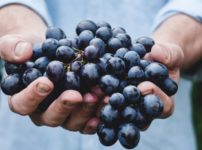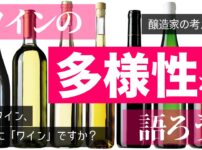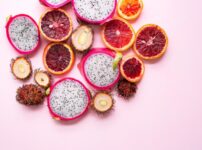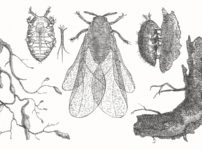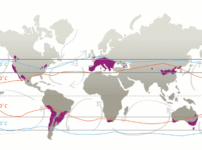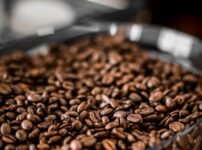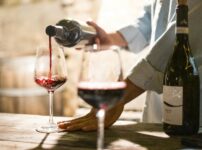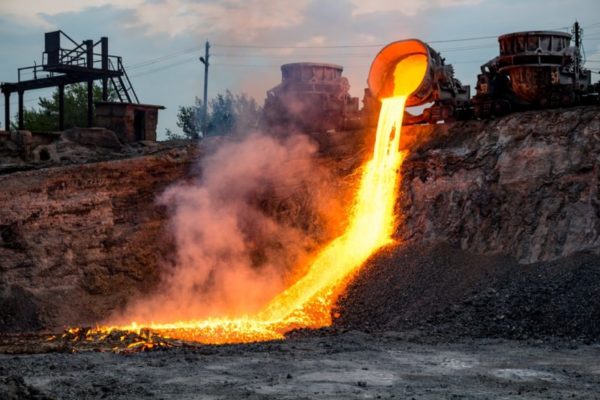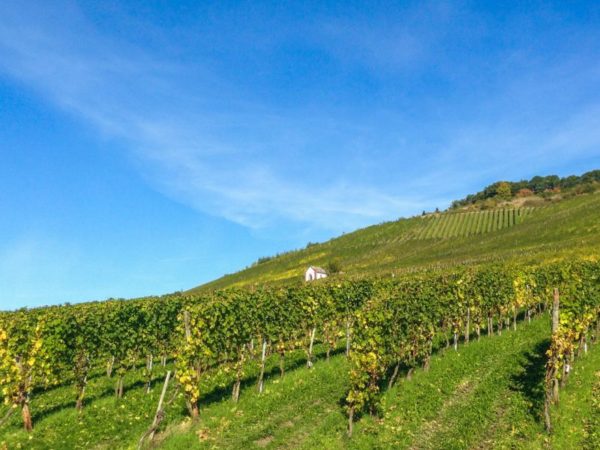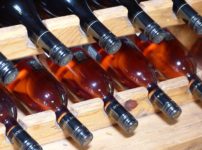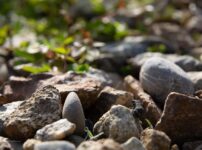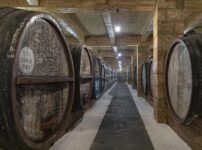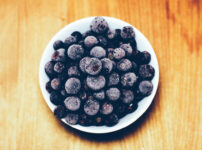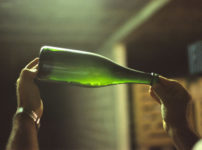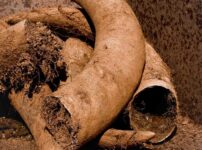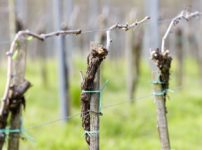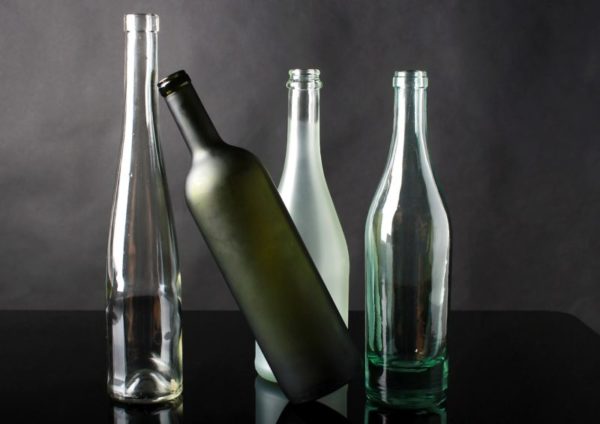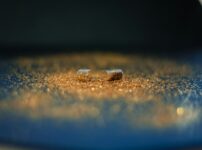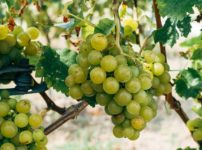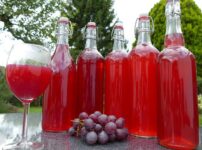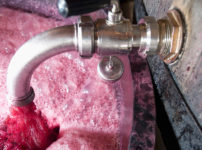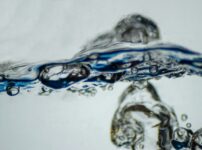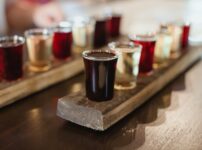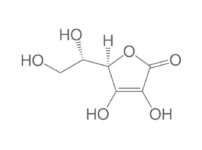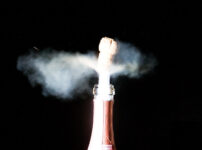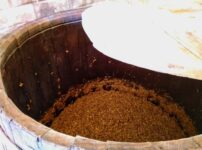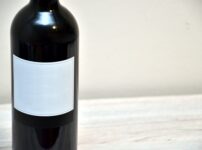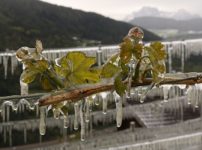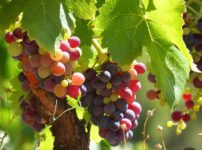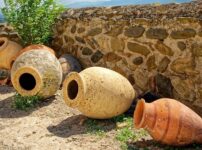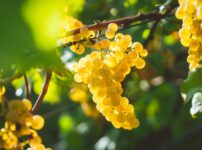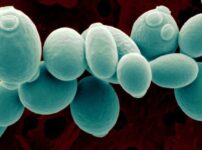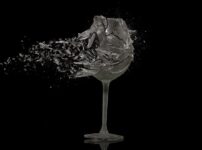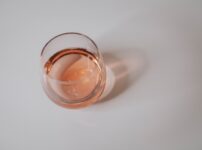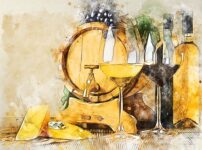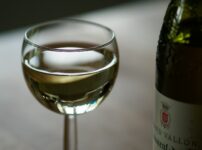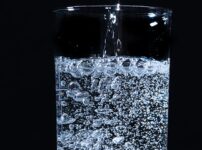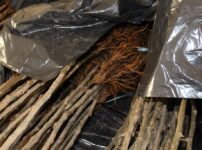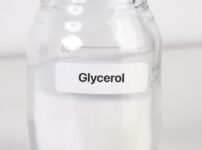Latest Articles
A Technique for Controlling Spontaneous Fermentation in Winemaking: Pied de Cuve
When making one’s own wine, few producers have never hesitated over the choice of whether to ferment with active dry yeast or to rely on indigenous microorganisms—so-called “wild” yeasts—present on grapes and in the winery. If the priority is fermentation …
Pruning Wine Grapevines: Sap Flow and Longevity Through the Lens of Fundamentals and History
Pruning is one of the most critical operations carried out in vineyards. In viticulture, pruning refers to removing unnecessary shoots and canes that have grown over the season, leaving only those required for the coming production cycle. This work is per …
Wine and Barrel-Derived Extracts: Phenolic Compounds and Oak-Related Aromas
This article focuses on the compounds extracted from wooden barrels during wine aging and their effects on wine. Discussions of barrel aging are often reduced to the notion of “oak aroma,” with an emphasis on aromatic attributes alone. In practice, howeve …
Myths and Realities of Whole-Cluster Fermentation: How Grape Stems Affect Wine
In the context of winemaking, you may have encountered terms such as “destemming” and “whole-cluster fermentation.” Both refer to how grape bunches are handled at the point of vatting. A grape cluster consists of many berries attached to a green, stem-lik …
Bio and “Natural”: A Winemaker’s View from the Cellar
Whenever I occasionally post about “natural wine” on X (formerly Twitter), those posts tend to be shared relatively widely for my account size. This simply indicates how many people react to this particular keyword. In recent years, especially in Japan, t …
The Relationship Between Fill Level and Wine Quality: What the Headspace Reveals
In the context of mature wines—those that have spent a decade or several decades in bottle—the fill level is often used as a quality indicator. Some importers and professional merchants routinely assess fill height and decline to ship bottles that fall be …
Quickly find articles by keyword
Select from category
All articles
What Do Wine Stabilizers Actually Stabilize? | About Gum Arabic (Acacia)
“Wine is made from grapes alone.” This is what most people believe, yet contrary to this assumption, some wine back labels include listings of additives. There are several types of additives, with antioxidants and stabilizers being among the most well-kno …
Writer
Masato Nagasawa (Nagi) Winemaker / Viticulturist / Oenologist A winemaker with an unconventional background who first properly learned about wine after arriving in Germany. His catchphrase is “Wine is, after all, just alcohol and merely one of many luxury …
Articles
Latest Articles Select from category All articles
Wine Bottle Storage: Vertical vs. Horizontal Storage – Which is Correct?
When storing wine, there’s probably one question that everyone has wondered about at least once: how should the bottle be positioned? Should wine bottles be stored horizontally, or should they not be stored vertically? A quick search reveals many explanat …
Wine Character Ruined! Understanding Film-Forming Yeasts and Their Control
Have you ever encountered a red wine that tasted oddly flat yet somehow spicy, with aromas reminiscent of dust, mold, or sulfur compounds? Such wines may have been affected by film-forming yeasts during their aging period. While the term “film-forming yea …
Grape Sunburn Phenomenon
Grape berries undergo sunburn phenomena similar to human skin. This phenomenon introduces burnt-like flavors into wine, particularly affecting the quality of white wines where delicate aromas are crucial. Sunburned berries must be sorted and removed durin …
Rising Temperatures Cause Widespread Damage: Understanding Grape Sunburn
With the arrival of summer, grapevines in vineyards continue their growth cycle. Currently, vineyard operations are proceeding simultaneously with lateral shoot removal, leaf removal, and shoot tip cutting. During this period, Germany experienced two days …
The Three Major Diseases of Wine Grapes | Downy Mildew: Causes and Control Measures
There is one disease that grape growers particularly fear during rainy years: downy mildew. Whether dealing with wine grapes or any other cultivated plants, the battle against diseases is unavoidable. Vineyards encounter various diseases, but the most pro …
A Comprehensive Guide to Petrol Notes in Wine
Are you familiar with the term “petri notes”? This is a specialized term frequently used in wine tasting, particularly when evaluating aged Riesling wines. Experienced tasters can sometimes identify a wine’s grape variety as Riesling the moment they detec …
Brettanomyces: The Yeast Behind Brett Off-Flavors in Wine
You open a bottle of wine you’ve been looking forward to and pour it into your glass. As you bring your nose close to enjoy the aromatic bouquet rising from the wine, something seems off. Many of you have probably had this experience. Wine that produces u …
The Chemistry of Wine Ageing | Fundamentals of the Maillard Reaction
A chemical reaction known as the Maillard reaction exists. This reaction is also called the amino-carbonyl reaction. The browning of meat when grilled, the appetizing golden color of baked cookies or toast, and the appealing color of fish teriyaki glazed …
Wine and pH – What Changes in pH Bring to Wine
One of the most critical factors in winemaking is pH. Many people may recall learning about pH in middle school science or high school chemistry classes. However, understanding how pH relates to wine can be challenging. When researching the relationship b …
The Impact of Vibration from Three Perspectives | How Does Vibration Change Wine?
Once bottled and shipped from wineries, wines are influenced by various environmental factors that alter their taste. We describe these taste changes as aging or deterioration. When we think of wine aging or deterioration, oxidation and heat damage are li …
The Complete Guide to Orange Wine Production
Overview In our previous article “Is Orange Wine Natural Wine?”, we explored the definition, origins, and relationship between orange wine and natural wine. This article provides a detailed examination of orange wine from a winemaking perspective. This ar …
Fundamental Understanding of Non-Saccharomyces Yeasts: New Options in Modern Winemaking
In modern winemaking, yeast selection technology continues to evolve constantly. A recurring phenomenon is observed where specific yeasts gain attention due to outstanding performance in competitions or industry recommendations, leading to rapid expansion …
Wine and Hygiene Management: Considering the Nature of Wine Character
Food should be hygienic. This seems like a given for those of us living in the modern era. However, Japan’s Food Sanitation Law was actually enacted in 1948, just 75 years ago. In 2018, this law was partially revised, making it mandatory for all food busi …
Wine and Volatile Acidity: Origins and Impact of Acetic Acid in Wine
Many people who study wine have encountered the term “VA” at some point. Initially, the meaning of this abbreviation may not be immediately clear. VA stands for Volatile Acid, which translates to “volatile acidity” in Japanese. More precisely, volatile ac …
Fundamentals and Applications of Non-Saccharomyces Yeasts: New Possibilities in Wine Production
The role of microorganisms in winemaking has been extensively studied throughout its history. Saccharomyces cerevisiae, which has long been the focus of attention as the primary agent of alcoholic fermentation, has become indispensable in modern winemakin …
How to Make Sulfur Dioxide-Free Wine
The terms “sulfur dioxide” or “sulfites” have become something of a dreaded unhealthy buzzword in Japan’s wine industry today, treated with the same revulsion as a venomous snake. Meanwhile, sulfur dioxide-free wines—those made without adding these antiox …
The Growing Wine Defect: What Is Smoke Taint?
There is a wine defect that is currently attracting attention. It is smoke taint. Smoke taint is a defect that occurs when grapes are exposed to smoke. In tasting, it is described with nuances such as “smoky,” “burnt rubber,” “bacon,” “disinfectant,” and …
Noble Mold Composing the World’s Finest Wines, or the Great Enemy that Rots Grapes | What is Botrytis?
What constitutes the world’s finest wine? Would it be the red wines of Bordeaux or Burgundy? The cult wines centered in America? The beloved Champagne? Or perhaps the trendy natural wines of today? In Germany, the legally classified highest-grade wine is …
Why Are Red Wines Red?
Why are red wines red? Many people have probably wondered about this question at some point. When researching this question, you can generally find the following information: The cause of red wine’s color is a substance called anthocyanins To extract more …
Can Yeast Constitute Terroir? Tracing the Genealogy of Genetics and Distribution
Various factors are considered important elements that contribute to the taste of wine. Among these, how significant would you position yeast as an element? In wine production, yeast plays an extremely important role. This is universally acknowledged. How …
Flor Yeast: The Film-Forming Yeast That Shapes Wine Character Through Biological Aging
Wine aging is a crucial element that deepens the wine’s flavor profile. While wines generally evolve through oxidative aging, an alternative method called “biological aging” is sometimes employed during the winemaking process. Biological aging is a matura …
Understanding Wine Reduction: The Most Significant Off-Flavor and Its Solutions
Wine occasionally develops unpleasant odors, defects, or off-flavors—unwelcome, sometimes distinctly repulsive aromas. Among the various unpleasant odors found in wine, “reduction” stands out as one of the most representative. Without fear of misunderstan …
Wine and Protein | Managing Causes of Haze and Allergies
Wine contains protein. Many people are surprisingly unaware of this fact. Some might say, “I know about that. Proteins are added as fining agents, right?” That’s correct. However, wine also contains proteins that don’t originate from fining agents. One mi …
Wine and Allergies
Did you know that wine may contain surprisingly many potential allergens? Acetaldehyde and biogenic amines, which can potentially cause headaches, may be present in any wine regardless of type or production method. On the other hand, casein and egg whites …
The Winemaking Technique of Carbonic Maceration
Wine terminology related to production processes is often difficult to understand and unfamiliar due to the extensive borrowing from French. However, among such terms, “carbonic maceration” is a name that many people may have heard of at some point. Carbo …
The Pros and Cons of Increasing Phenols and Tannins in Wine | Extended Maceration
Maceration is one of the winemaking techniques used in wine production. In Japan, this technique is also called “kamoshi” (醸し), and it refers to the process of soaking grape skins and seeds in grape juice or wine for periods ranging from several hours to …
The Environment Surrounding Winemaking | Is There Really Anything That Remains Unchanged?
The tasting method of comparing wines from different harvest years made from the same grape variety harvested from the same vineyard is called “vertical tasting.” This vertical tasting serves two purposes. The first purpose is to compare wines from new an …
Is Quality Control Unnecessary for Wine? The Crisis of a Lawless Territory Called “Half-Hearted Natural Wine”
Before writing this article, there is something I must clarify first. The author does not belong to any faction that could be called “anti-natural wine,” nor do I have an extreme dislike for “natural wine.” I hope you will read this article with this unde …
Is It True That Antioxidants Cause Headaches?
While it seems to be mentioned somewhat less frequently these days, there is a persistent claim that antioxidants contained in wine—specifically additives called sulfites or sulfurous acid—are the cause of headaches that occur when drinking wine. This the …
Exploring Wine Diversity
https://www.youtube.com/watch?v=l3zcrR39d8Q In recent years, the concept of “diversity” has become a frequent topic of discussion within the wine industry. However, this diversity does not merely refer to variations within traditional frameworks such as d …
Why Grape Aromas Differ from Wine Aromas | Volatile Compounds and Precursors
Aroma is one of the essential elements that cannot be overlooked when enjoying wine. When we pour wine into a glass, we don’t immediately put it to our lips. First, we bring the glass close to our nose and enjoy the aromas that rise from it. Sometimes we …
Comprehensive Guide to Phylloxera
On March 5, 2019, news emerged of fresh phylloxera damage in vineyards in the Yarra Valley, Victoria, Australia. Phylloxera represents one of the most devastating pests in viticulture, capable of causing catastrophic damage to grapevines. In the past, thi …
The Truth About “Good Vineyards” in Wine
https://www.youtube.com/watch?v=O9hVTlhyZDc Among wine enthusiasts, the belief that “good vineyards” produce quality wines is widely accepted. Wines from vineyards with classifications such as Grand Cru or Premier Cru are often perceived as “distinctly di …
Wine, Acids, and Lactic Acid Bacteria | Understanding MLF
Acids are indispensable elements in wine. However, acids are inappropriate whether they are too abundant or too scarce. The overall balance is extremely important. Wine contains multiple acids, but from a winemaking perspective, tartaric acid and malic ac …
Is Germany the Northern Limit of Viticulture?
When people begin studying wine, many learners are taught that “wine grape cultivation takes place between 30° and 50° North latitude and 30° and 40° South latitude,” aren’t they? Then, when they move on to the chapter dealing with German wines, they like …
Can Concrete Transform Winemaking?
Attention is returning to wines that are fermented and aged in concrete vessels. Concrete is a building material very familiar to modern people. While concrete is strongly associated with building exteriors and walls, in winemaking it serves as a material …
Why Do Wines Taste Bitter?
Have you ever found a wine to taste “bitter”? How about sake—have you ever experienced bitterness when drinking it? When drinking alcoholic beverages, we occasionally encounter bitterness. Have you ever wondered why this happens? What would you think if t …
A Comprehensive Guide to Phenols and Tannins in Wine
Minerals and tannins. Can anyone truly claim they have never used these terms? That’s how established minerals and tannins have become as tasting expressions in wine. However, few people can properly explain the specific meanings these expressions refer t …
Where Does the Iron Taste Come From? An Exploration of Minerals
Recently, I had the opportunity to taste wines at a winery located in Enzan, Yamanashi Prefecture. During the tasting of several wines from their lineup, one particular characteristic struck me strongly: the taste of iron. When I asked the winemaker about …
Understanding Soil in Wine
When introducing wines in Japan, it seems that reference to the type of soil in which the grapes were cultivated is frequently made as one of the elements expressing a wine’s character. While this tendency is not limited to Japan alone, it appears particu …
How Long Will Premium Vineyards Remain Premium? | Vineyard Location
On September 12th, the winery where I work harvested grapes for the first time in the 2019 season. While grape growth wasn’t as abnormally accelerated as in 2018, when the harvest came nearly a month earlier than usual, 2019 still marked the beginning of …
Complete Guide: Rosé Wine Production Methods and Their Characteristics
I once encountered an observation that “rosé wines are difficult to imagine even when you know their origin and grape variety.” While this is a fascinating perspective, as someone actually involved in winemaking, I find myself thinking, “Yes, that might i …
Wine Minerality | Exploring the True Nature of “Taste,” “Aroma,” and “Sensation” in Mineral Character
When drinking wine, there is an expression you will inevitably encounter somewhere along the way: “mineral character” or “minerality.” Even those who haven’t heard these terms yet will almost certainly encounter them in the relatively near future, as they …
Wine and Cork | The Impact of Cork on Wine Flavor
Cork is the quintessential material for sealing wine bottles. Today, cases of using alternative closures such as screwcaps to seal wine bottles are increasing. Winemakers have come to freely choose from multiple options based on their own philosophy. Agai …
Wine Transportation, Storage, and Temperature Management | Understanding the Effects of Heat
During hot summer months, specifying refrigerated delivery for wine shipments has become almost standard practice. For wines delivered to homes, storing them in dedicated wine cellars whenever possible is widely recommended. The reason these temperature-r …
The Truth About Natural Wine
https://www.youtube.com/watch?v=Z-SccwUyehI The term “natural wine” remains a perpetual source of heated debate among wine enthusiasts. This phrase has become so ubiquitous that it jumps out at us from Tokyo’s streets in combinations like “natural wine an …
The Power of Yeast | The Relationship Between Wine Aging and Lees
Yeast is indispensable in winemaking. It is only through the presence of yeast that grape juice can transform into wine. While yeast may be considered the protagonist of winemaking, its stage of activity is not limited to the period of alcoholic fermentat …
Wine and Enzymes: Creating Low-Alcohol Wine with Enzymes
Whether it’s wine or any other alcoholic beverage, drinks with excessively high alcohol content are often difficult to consume. While there are spirits with extremely high alcohol levels in the world, for wine specifically, the upper limit for enjoying wi …
Winemaking Techniques Using Frozen Grapes
Freshness is the lifeblood of fruit. This holds true for winemaking as well. Therefore, harvested grapes should be processed into wine as quickly as possible—every minute, every second counts. Many people may hold this image of winemaking. The topic we ex …
Complete Guide | How Sparkling Wine is Made
Sparkling wine, epitomized by Champagne, is an indispensable element at parties and other festive occasions. Have you ever wondered how this effervescent wine containing carbon dioxide gas is actually produced? While explanations of production methods are …
Biodynamic Fundamentals: Understanding Biodynamics Through Three Key Questions
In recent years, the term “biodynamic” or “biodynamic agriculture” has rapidly gained mainstream recognition. This is particularly true in the wine industry, where many globally acclaimed producers have adopted this approach, and you may have encountered …
The Growing World of Grape Varieties | The PIWI Category
Cabernet Blanc, Cabernet Jura, Muscaris, Souvignier Gris. Do these varietal names sound familiar to you? From the sound of “Cabernet~”, “Musca~”, and “Souvi~”, many of you may have guessed that these are wine grape varieties. Indeed, these are all names o …
The Significance of Magnum Bottles
Are you familiar with magnum bottles? Wine bottles come in various types, primarily distinguished by their capacity. A “magnum bottle” is one such classification based on this “capacity” criterion. A magnum bottle refers to a bottle that holds twice the v …
Yeast That Threatens Fermentation: The Existence of Killer Yeast, Where Yeast Kills Yeast
Fermentation management is one of the most important processes in winemaking. Depending on how this fermentation proceeds, the resulting wine will vary in both taste and aroma. When discussing fermentation management, attention tends to focus on what temp …
Alcohol Adjustment in Wine | Considering Water Addition
Global temperatures are rising due to climate change, accelerating the growth of wine grapes accordingly. Warmer winters have caused grape budbreak to occur earlier, and through increasingly hot summers, we can now harvest grapes that are more mature than …
Alcohol-Free Wine: A New Strategy for Wineries
When we think of recent trends in the wine industry, natural wines and orange wines come to mind. However, in reality, non-alcoholic wines are receiving even more intense attention than these wine categories. Non-alcoholic beverages without alcohol are ex …
The Dark Side of Winemaking? Is Chaptalisation Evil? | On Chaptalisation
The addition of brewing alcohol in sake production and sugar supplementation in winemaking—these practices seem to be quite antagonized in many cases. They give the impression of being the dark side of fermented beverages, untouchable territories, so to s …
Why People Buy Natural Wine
I would like to introduce the content of a fascinating article published in the German wine magazine “der deutsche Weinbau.” Image or Sensation? The title of this article is “Image vs. Sensorik.” If we translate this somewhat freely, it becomes “Image or …
The Relationship Between Alcohol and Wine’s Taste and Aroma Perception
When tasting wine, which element do you focus on most? Many of you might be conducting tastings that center more on aroma than on flavor. For winemakers, some of you may be paying more attention to the wine’s compositional elements themselves, such as res …
Natural Wine from the Consumer’s Perspective
Research Background and Methodology The German specialized magazine der deutsche weinbau published an article about a highly intriguing study titled “Bewusst Geniessen” (Conscious Enjoyment). This research was conducted in Austria and focused on the reaso …
Wine and Oxygen: Understanding Wine Oxidation – A Foundational Guide
Oxygen is wine’s mortal enemy. After all, oxygen oxidizes wine and degrades its quality. Whether during winemaking or after bottling, oxygen should be eliminated as much as possible—or so you might think. In reality, oxygen is intentionally utilized at va …
Do Cloudy Wines Need Antioxidants? Another Way to Protect Wine from Oxidation
Oxidation is widely recognized as one of the causes of wine deterioration. When a bottle is opened and the wine becomes more exposed to oxygen, this chemical reaction progresses more noticeably. For this reason, oxygen is generally considered to be the ca …
The Impact of Ascorbic Acid Addition on Wine
In a recently published article titled “Wine Off-Flavors | UTA / ATA,” I discussed how aged nuances detected in what should be young white wine may indicate the presence of UTA, one type of off-flavor. In that article, I introduced the addition of ascorbi …
Wine Off-Flavor | UTA / ATA
You tasted a white wine at a winery or wine shop and liked it enough to purchase it. However, you felt it was still a little early for drinking, so you decided to let it rest a bit longer in your home cellar. Six months later, at the dinner table. You kne …
The Surprising Truth Behind Sparkling Wine Gushing
When you’re tired from the day’s work, when you want to add a touch of elegance to your everyday life, when you wish to spend quality time with close friends, or when you need to refresh yourself from the oppressive heat—sparkling wine is the perfect comp …
Understanding Biogenic Amines in Wine: A Foundational Guide
Many of you may be familiar with names like histamine, tyramine, or dopamine. These substances are called “biogenic amines.” Recently, discussions about biogenic amines (BA) in relation to wine have become increasingly common. Biogenic amines occupy a som …
The Science of Extraction in Winemaking: Dynamic Equilibrium and the Limits of Optimization
Extraction is a crucial operation in winemaking, particularly for red wines. It affects every aspect of wine, from color intensity to aging potential. In winemaking, extraction refers to the transfer of compounds contained in grape skins and seeds into th …
Wine Labels Create the Taste Experience
When you decide to buy wine and head to the wine section, you’ll find countless labels lined up before you. If you’ve already decided which bottle to buy, that’s one thing, but if not, how do you make your choice? Country, region, vineyard, grape variety, …
Frost Protection Methods in Vineyards
Recently, I wrote an article about how earlier budbreak in grapevines increases the risk of frost damage. But do you know what methods exist to protect against this frost damage? Traditional Method: Warming by Open Fires The most traditional countermeasur …
Wine Oxidation: The Influence of Metals in Wine
Have you ever opened a bottle of wine you were looking forward to drinking, only to encounter a sulfur-like odor? When mild, this aroma is sometimes described as flint or struck match and can even be viewed favorably in wines made from certain grape varie …
Is It Really True That Wine Tastes Different from Vineyard to Vineyard?
When discussing the taste of wine, haven’t you often heard the phrase “wine tastes different from vineyard to vineyard”? In fact, this statement merely describes something extremely obvious. What’s more, if you find yourself convinced by this narrative, y …
The Outside World is Filthy
The Reality of Microbial Contamination How many of you have ever heard the term “microbial contamination”? Working in winemaking, albeit in a small corner of the world, one encounters various challenges. Wine often carries an image of luxury and high soci …
Wine Knowledge
Comprehensive Analysis Series Off-Flavor Analysis Series In-Depth Knowledge | Comprehensive Analysis Series Understanding Wine Off-Flavors | Off-Flavor Analysis Series
Contact
Independent winemaker and consultant specializing in viticulture and enology. I provide consulting services for vineyard management, winemaking operations, and professional education programs. Contact me to discuss your consulting needs.
Nagis wineworld
“Nagi’s Wineworld – A Winemaker’s Perspective” This site is managed by a professional enologist with degrees in viticulture and enology from Geisenheim University, Germany, currently working at a German winery. Drawing on hands-on experience in vineyard m …
The Relationship Between Wine, Tradition, and Vessels | Examining the Meaning of Qvevri and Bocksbeutel
There are vessels that have been traditionally used in winemaking for centuries. When we think about it carefully, there may be cases where we cannot clearly explain why we continue to use them. Why do we use qvevri? What makes Bocksbeutel superior to ord …
How Light Changes Wine Aroma | Light-Struck Flavor
Light-struck flavor, or “nikkoushuu” in Japanese. The name might evoke images of freshly laundered white sheets fluttering under a clear blue sky, or the pleasant scent of sunshine when wrapped in those sheets. Unfortunately, that is not what this term re …
Glass Shape and Wine Perception: Does Glass Form Alter Wine Enjoyment?
Many wine enthusiasts find their cupboards filled with an extensive collection of wine glasses. Others may appreciate wine bars that serve wines in multiple glass types tailored to different wines. The marketplace offers an extraordinary variety of wine g …
Does Wine Glass Selection Alter the Taste of Wine?
Recently, a wine glass produced by a renowned Master of Wine (MW) was introduced in Japan, garnering considerable attention. This particular MW has consistently used the same glass for both red and white wines throughout many years of professional practic …
The Future of Wine? A Comprehensive Analysis of PIWI Varieties
Among wine professionals, grape varieties have increasingly become a topic of discussion. Grape varieties have long been subjects of debate regarding their relationship to selling prices, compatibility with cultivation regions, and the correlation between …
A Comprehensive Guide to Wine Yeast: The Fundamentals
Two essential components are indispensable for winemaking. One is grapes, the raw material. The other is yeast. Yeast is utilized in the production of fermented beverages such as wine, beer, and sake. It is also employed in the fermentation of bread dough …
The Science of Bubbles: Understanding the Mechanism Behind Sparkling Wine’s Appeal
Sparkling wine is an indispensable element of celebrations and gatherings, extending far beyond Christmas and New Year festivities. The sight of bubbles ascending through a flute glass alone can evoke a sense of festivity in the consumer. Sparkling wine i …
Malolactic Fermentation and Wine Off-Flavors | The Dual Nature of MLF
Malolactic fermentation (MLF) is an oenological technique actively employed to reduce wine acidity and impart distinctive aromatic characteristics and nuances. MLF represents one of the microbial-mediated approaches in winemaking, and its appeal as a more …
The Relationship Between Color, Flavor, and Aroma in Rosé Wines: Considerations for Rosé Production
Wine can be classified in several ways. One of the most fundamental classifications is based on color. The most representative categories are white wine, red wine, and rosé wine. However, wine color classifications extend beyond these three. Yellow wine ( …
Winery Perspectives | Balancing Flavor and Intervention
The state of phenolic compounds is one of the most critical considerations in red wine production. The quantity and condition of phenolic compounds in wine profoundly influence its flavor profile. When phenolic compounds are present in insufficient quanti …
Producing Lower-Alcohol Wines Without Water Addition
In recent years, global winters have become warmer and summers have turned into periods of extreme heat. Daily life that once considered 30°C hot has shifted to a reality where 40°C is now the standard for hot weather. The terms “global warming” and “clim …
Inexpensive Wines and High-Value Wines: A Winemaker’s Perspective
In contemporary society, many people wish to enjoy good food and beverages while preferring to avoid excessively high prices. Finding something delicious at an affordable price is satisfying, and discovering value beyond the price point is even more grati …
Soil and Soil Names: How Information Shapes the Expected Taste of Wine
When examining labels on German wine bottles, one notices a distinctive feature. These wines often display information rarely found on bottles from other countries: terms such as Buntsandstein, Löß, Muschelkalk, and Schiefer. Do you know what these refer …
Wine, Soil, and Terroir | Slate Color and Wine Character
When explaining the distinctive character of wine, the discussion often relates to terroir. Soil is one of the elements that constitute terroir. There are numerous types of soil. Alongside clay and limestone, Schiefer occupies a significant position among …
Protecting Wine from Oxidation Through Oxidation | Hyperoxidation
Wine and oxidation are a notoriously incompatible combination. Consider a familiar scenario: you open a bottle of wine that tastes excellent, but you cannot finish it in one sitting. You reseal the bottle and store it in the refrigerator, intending to dri …
A New Format for Wine: Bag-in-Box
Bag-in-Box (BIB) packaging has gained notable traction in recent years, particularly because it suits household consumption and large-volume use. A BIB consists of a flexible pouch containing wine housed within a cardboard outer box. Most packages hold at …
Foundations of Grapevine Rootstocks
According to statistics published by the International Organisation of Vine and Wine (OIV), the global vineyard area in 2022—encompassing wine grapes as well as table grapes, raisins, and juice grapes—amounted to approximately 7.3 million hectares.Althoug …
Understanding South African Wine Through Data
Why South African Wines Deliver Exceptional Quality at Accessible Prices South African wines have become indispensable in the global market as leading examples of high-quality yet affordable wines. While Chile once dominated this category, South Africa is …
Wine Flavour and Glycerol
Wine exhibits remarkable diversity in both flavour and aroma. Even wines produced in the same region during the same vintage never show completely identical sensory profiles. Moreover, when a single producer vinifies grapes from the same vineyard under id …
The Relationship Between Fill Level and Wine Quality: What the Headspace Reveals
In the context of mature wines—those that have spent a decade or several decades in bottle—the fill level is often used as a quality indicator. Some importers and professional merchants routinely assess fill height and decline to ship bottles that fall be …
Bio and “Natural”: A Winemaker’s View from the Cellar
Whenever I occasionally post about “natural wine” on X (formerly Twitter), those posts tend to be shared relatively widely for my account size. This simply indicates how many people react to this particular keyword. In recent years, especially in Japan, t …
Myths and Realities of Whole-Cluster Fermentation: How Grape Stems Affect Wine
In the context of winemaking, you may have encountered terms such as “destemming” and “whole-cluster fermentation.” Both refer to how grape bunches are handled at the point of vatting. A grape cluster consists of many berries attached to a green, stem-lik …
Wine and Barrel-Derived Extracts: Phenolic Compounds and Oak-Related Aromas
This article focuses on the compounds extracted from wooden barrels during wine aging and their effects on wine. Discussions of barrel aging are often reduced to the notion of “oak aroma,” with an emphasis on aromatic attributes alone. In practice, howeve …
Pruning Wine Grapevines: Sap Flow and Longevity Through the Lens of Fundamentals and History
Pruning is one of the most critical operations carried out in vineyards. In viticulture, pruning refers to removing unnecessary shoots and canes that have grown over the season, leaving only those required for the coming production cycle. This work is per …
A Technique for Controlling Spontaneous Fermentation in Winemaking: Pied de Cuve
When making one’s own wine, few producers have never hesitated over the choice of whether to ferment with active dry yeast or to rely on indigenous microorganisms—so-called “wild” yeasts—present on grapes and in the winery. If the priority is fermentation …



